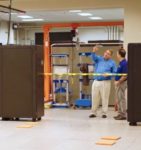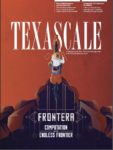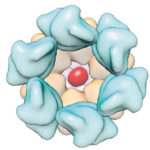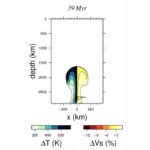In this TACC Podcast, Dan Stanzione and Doug James from the Texas Advanced Computing Center discuss the thorny issue of reproducibility in HPC. “Computational reproducibility is a subset of the broader and even harder topic of scientific reproducibility,” said Dan Stanzione, TACC’s executive director. “If we can’t get the exact same answer bit-for-bit, then what’s close enough? What’s a scientifically valid way to represent that? That’s what we’re after.”
Search Results for: tacc
Video: How Intel Data-Centric Technologies will power the Frontera Supercomputer at TACC
In this video, researchers from the Texas Advanced Computing Center describe how Intel data-centric technologies power the Frontera supercomputer, which is currently under installation. “This system will provide researchers the groundbreaking computing capabilities needed to grapple with some of science’s largest challenges. Frontera will provide greater processing and memory capacity than TACC has ever had, accelerating existing research and enabling new projects that would not have been possible with previous systems.”
TACC to power HSM Archives with Quantum Corp Tape Libraries
Today Quantum Corp. announced the Texas Advanced Computing Center has selected Quantum StorNext as their archive file system, with a Quantum Scalar i6000 tape library providing dedicated Hierarchical Storage Management. “Our ability to archive data is vital to TACC’s success, and the combination of StorNext as our archive file system managing Quantum hybrid storage, Scalar tape and our DDN primary disk will enable us to meet our commitments to the talented researchers who depend on TACC now and in the future,” said Tommy Minyard, Director of Advanced Computing at TACC.
New Texascale Magazine from TACC looks at HPC for the Endless Frontier
This feature story describes how the computational power of Frontera will be a game changer for research. Late last year, the Texas Advanced Computing Center announced plans to deploy Frontera, the world’s fastest supercomputer in academia. To prepare for launch, TACC just published the inaugural edition of Texascale, an annual magazine with stories that highlight the people, science, systems, and programs that make TACC one of the leading academic computing centers in the world.
Video: Computing for the Endless Frontier at TACC
In this talk from the Intel User Forum at SC18, Dan Stanzione from TACC presents: Computing for the Endless Frontier. “Coming to TACC in 2019, the Frontera supercomputer will be powered by Intel Xeon Scalable processors. It will be the first major HPC system to deploy the Intel Optane DC persistent memory technology for a range of HPC and AI uses. Anticipated early projects on Frontera include analyses of particle collisions from the Large Hadron Collider, global climate modeling, improved hurricane forecasting, and multi-messenger astronomy.”
Video: Intel to Power Fastest Supercomputer in Academia at TACC
In this video, Dan Stanzione from TACC describes how Intel technologies from Intel will power the World’s Fastest Supercomputer in Academia at the Texas Advanced Computing Center. “If completed today, Frontera would be the fifth most powerful system in the world, the third fastest in the U.S. and the largest at any university. For comparison, Frontera will be about twice as powerful as Stampede2.”
New Frontera supercomputer at TACC to push the frontiers of science
Today the National Science Foundation announced a $60 million award to TACC for the deployment of Frontera, a new machine that will be one of the fastest supercomputers ever available to academia. “The new Frontera systems represents the next phase in the long-term relationship between TACC and Dell EMC, focused on applying the latest technical innovation to truly enable human potential,” said Thierry Pellegrino, vice president of Dell EMC High Performance Computing. “The substantial power and scale of this new system will help researchers from Austin and across the U.S. harness the power of technology to spawn new discoveries and advances in science and technology for years to come.”
Supercomputing HIV-1 Replication at TACC
Researchers are using TACC supercomputers in the fight against HIV. In a new study published in Nature, a team led by Cornell researcher found the naturally-occurring compound IP6 promotes both assembly and maturation of HIV-1. “We discovered, in collaboration with other researchers, that HIV uses this small molecule to complete its function,” said Juan R. Perilla, Department of Chemistry and Biochemistry, University of Delaware. “This is a molecule that’s extremely available in human cells and in other mammalian cells. HIV has evolved to make use of these small molecules present in our cells to essentially be infectious.”
Podcast: TACC Powers Deep Earth Imaging
“In this TACC Podcast, Ross Maguire and Jeroen Ritsema of the University of Michigan describe how supercomputer simulations of volcanos show how mantle plumes form and how they rise from Earth’s mantle. What’s more, the researchers say their work could guide future experiments with seismic imaging and help get to the bottom of mysteries like the origin of Hawaii’s volcanos.”
TACC Podcast Previews SXSW Session on Quantum Computing
In this TACC Podcast, Antia Lamas-Linares of the Texas Advanced Computing Center gives us a preview of her session on Quantum Computing at the SXSW conference. “Imagine a new kind of computer that can quickly solve problems that would stump even the world’s most powerful supercomputers. Quantum computers are fundamentally different. They can store information as not only just ones and zeros, but in all the shades of gray in-between. Several companies and government agencies are investing billions of dollars in the field of quantum information. But what will quantum computers be used for?”













